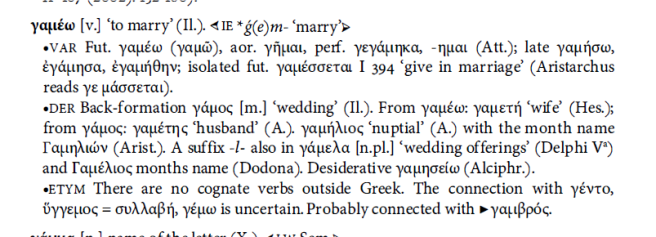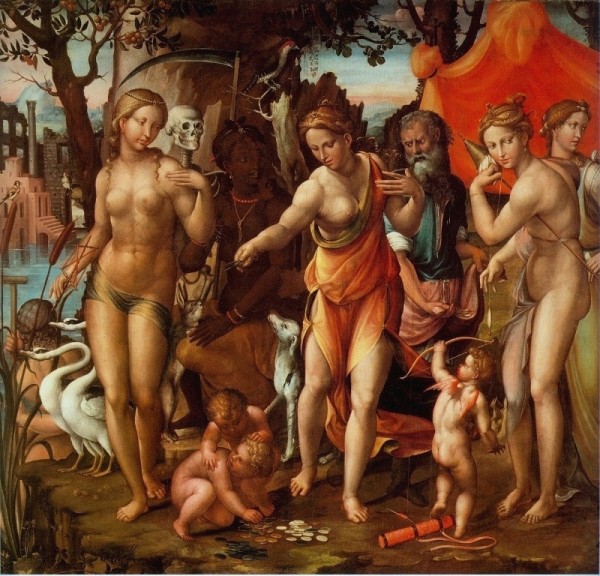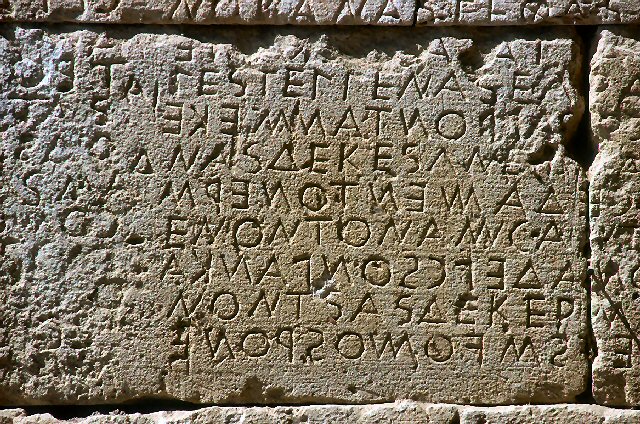A re-post in honor of Odyssey Round the World

Someone asked me to put together a post on nostos. Here’s what I got. I am happy to add anything someone else can find. This is far from exhaustive.
The Greek noun nostos (“homecoming”) is mostly reconstructed as a reflex of a verbal root neomai (“to come or go”) but its semantic range drifts to include ideas of salvation and rescue.
From Beekes’ Etymological Dictionary of Ancient Greek (2010)

In early Greek poetry, nostos is a song that is about homecoming. On this, see Nagy 1999 [1997], 97; Murnaghan 2002, 147. Douglas Frame (1978) argues that it also means “return to light and life” whereas Anna Bonifazi adds “salvation not death”. For more on the nostoi as a tradition, see the discussion and bibliography in Barker and Christensen 2015. Gregory Nagy surveys the meaning of the term nostos in the Odyssey as return and a song of homecoming in his Ancient Greek Hero in 24 Hours.
In later Greek, the term retained much of this meaning but, as I will show below, it can also mean “sweetness”. The thematic and proverbial power of the poetic tradition seems to have kept this specialized meaning as primary as the language developed.
From E.A. Sophocles “Dictionary of Byzantine Greek”

Our English word nostalgia comes from a post-classical Latin compound which has deep resonance with Greek epic, especially Odysseus. Odysseus has thematic associations with algea (neuter plural for algos, “grief, pain”). Our modern meaning of “acute longing for familiar surroundings” or “sentimental longing for a period of the past (OED online)” may draw on ancient poetic associations. A nostos is a return to the home, which is symbolically a return to the past. Ultimately, it is partly a futile wish because neither home nor person (neither the past, nor the rememberer) remain the same.
Nostalgia was originally coined by Johannes Hofer in 1688 for a pathological mental disorder, a type of mania that involved longing for the past. Some modern psychological studies still examine the phenomenon. It has been described as both parafunctional in undermining a sense of well-being and rootedness in the future (Verplanken 2012) and as a useful resource of memory which can help reinforce identity against existential threats (Routledge et al 2012 and Sedikedis and Wildschut 2016).
The ancient etymological dictionaries pretty much provide the same information as the Byzantine Suda:
Suda, Nu 500
“Nostos: The return to home. From the sweetness of a homeland. Or it comes from the giving of flavor. But also “the poets who sang the songs of Return follow Homer to the extent they are capable. It seems that not only one poet composed and wrote the homecoming of the Achaeans, but some others did too.
Νόστος: ἡ οἴκαδε ἐπάνοδος. παρὰ τὸ τῆς πατρίδος ἡδύ.
ἢ ἡ ἀνάδοσις τῆς γεύσεως. καὶ οἱ ποιηταὶ δὲ οἱ τοὺς Νόστους ὑμνήσαντες ἕπονται τῷ ῾Ομήρῳ ἐς ὅσον εἰσὶ δυνατοί. φαίνεται ὅτι οὐ μόνος εἷς εὑρισκόμενος ἔγραψε νόστον ᾿Αχαιῶν, ἀλλὰ καί τινες ἕτεροι.
Nu 501
“Homecoming: in regular use it is “sweetness”, applied to edibles. This comes from the [sweetness] of returning and coming back again home. From the sweetness of your homeland, for nothing is sweeter than your fatherland, according to Homer. From nostos in customary use we also have nostimon, which can mean “pleasant”, “sweet”. And there is a certain god, Eunostos, a divinity of the mill. The poetic term nostos comes from neô [to go], in, for example “now I am not going home.” This means “I do not return” [epanerkhomai]. There is also the form nostô, which provides the compounds palinostô, and aponostô.”
Νόστος: παρὰ τῇ συνηθείᾳ ὁ γλυκασμός, ἐπὶ τῶν ἐδεσμάτων. ὡς ἀπὸ τῆςοἴκαδε ἀνακομιδῆς καὶ ἀναστροφῆς· παρὰ τὸ τῆς πατρίδος γλυκύ. οὐδὲν γὰρ γλύκιον ἧς πατρίδος, καθ’ ῞Ομηρον. ἐκ δὲ τοῦ κατὰ τὴν συνήθειαν νόστου καὶ νόστιμον, τὸ ἡδύ. καὶ Εὔνοστος, θεός τις, φασίν, ἐπιμύλιος. ὁ δὲ ποιητικὸς νόστος παρὰ τὸ νέω γίνεται. οἷον, νῦν δ’ ἐπεὶ οὐ νέομαι γε. ἤγουν οὐκ ἐπανέρχομαι. ἔστι δὲ καὶ ῥῆμα νοστῶ, οὗ σύνθετα παλινοστῶ καὶ ἀπονοστῶ
Some things cited in this post:
Barker, Elton T. E. and Christensen, Joel P. 2015. “Odysseus’s Nostos and the Odyssey’s Nostoi,” in G. Scafoglio, Studies on the Epic Cycle. Rome. 85–110.
Bonifazi, A. 2009. “Inquiring into nostos and its cognates.” American Journal of Philology 130: 481–510.
Frame, Douglas. 1978. The Myth of Return in Early Greek Epic. New Haven.
Murnaghan, Sheila. 2002. “The Trials of Telemachus: Who Was the Odyssey Meant for?” Arethusa 35: 133–153.
Nagy, Gregory. 1979. The Best of the Achaeans: Concepts of the Hero in Archaic Greek Poetry. Baltimore.
Routledge, Clay, Wildschut Tim, Sedikides, Constantine, Juhl, Jacob, , and Arndt, Jamie. 2012”The power of the past: Nostalgia as a meaning-making resource.” Memory, 1-9.
Sedikides, Constantine and Wildschut, Tim. 2016. ”Nostalgia: A Bittersweet Emotion that Confers Psychological Health Benefits.” The Wiley Handbook of Positive Clinical Psychology, 126–136.
Verplanken, Bas. 2012. “When bittersweet turns sour: Adverse effects of nostalgia on habitual worriers.” European Journal of Social Psychology, 42, 285–289.
Like this:
Like Loading...












